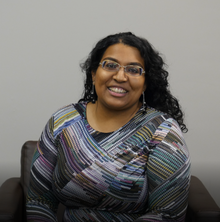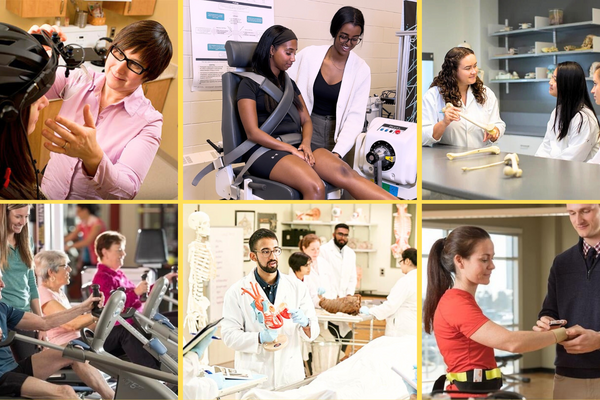
Everybody writes
Meet the young alumnus who gives back to improve students’ writing skills

Meet the young alumnus who gives back to improve students’ writing skills
By Megan Vander Woude Office of AdvancementSara Kannan (BA ’16) didn’t expect her love of writing to result in a job at an engineering firm. But today, she's a technical writer working with engineers and technical experts.
While it might not be the career she expected, Sara’s passion for communications is just as strong as it was when she was an Honours Literature and Rhetoric student at Waterloo. Since starting her career, she’s noticed just how much writing happens in the workplace – even in some unexpected roles.
 “Most jobs, even for engineers, involve a lot of sending emails, writing memos, and coming up with written proposals,” she explains.
“Most jobs, even for engineers, involve a lot of sending emails, writing memos, and coming up with written proposals,” she explains.
Soon after she graduated and began her career, Sara started sharing her passion for writing with current students at Waterloo, giving her time and financial resources to develop and practice the writing skills they’ll use post-graduation.
After Sara graduated, she connected with George Lamont, a lecturer who teaches communications to engineering students. When he learned about Sara’s job, George saw an opportunity to improve his students’ experiences.
“The Canadian Engineering Accreditation Board requires communications instruction for all engineering students,” explains George. “Waterloo Engineering teaches a stand-alone course in communications. Sara advises us on how to make this course truly authentic.”
Using her experience in an engineering firm, Sara volunteers her time and expertise to make the class a practical learning experience. She provides insight about proposal writing, how she collaborates on technical documents, and how George can offer assignments that mimic real writing tasks in an engineer’s workplace. She also hopes to expose future engineers to the collaboration involved in making a technical document.
“Helping students develop their communication skills – it doesn’t just prepare them for their writing tasks,” she says. “It also exposes them to different skill sets that are important and difficult to develop. I hope that it leads them to be collaborative in their careers.”
Sara also gives to students studying in the Department of English Language and Literature, like she did.
As a student, Sara regularly entered her essays and other coursework in departmental writing competitions. She benefitted from the monetary prizes they provided, but she also noticed that some of her essays didn’t fit into the competition categories. In her upper years, she became interested in post-colonial literature.
As soon as she graduated and was no longer eligible for the prizes, Sara contacted the department to create a new category for the competitions. Today, she funds a writing prize for essays and coursework that explore post-colonial topics.
“I hope that this encourages students to continue their studies in post-colonialism, transnationalism and diaspora,” says Sara. “These topics affect everyone, as they are pervasive and present in so many aspects of life. My hope is to support and reward students who are engaged in these important topics.”
We asked Sara and other donors why they give back to Waterloo. Their answers gave us new insight on community, individual influence, and the importance of generosity. Watch the video to see what they said.

Read more
A Waterloo couple reflects on the campus that shaped their careers, their values, and their love story

Read more
To meet our AI ambitions, we’ll need to lean upon Canada’s unique strengths

Read more
From optometry and pharmacy to public health and therapeutics, Waterloo alumni are powering Canada’s health care sector
The University of Waterloo acknowledges that much of our work takes place on the traditional territory of the Neutral, Anishinaabeg, and Haudenosaunee peoples. Our main campus is situated on the Haldimand Tract, the land granted to the Six Nations that includes six miles on each side of the Grand River. Our active work toward reconciliation takes place across our campuses through research, learning, teaching, and community building, and is co-ordinated within the Office of Indigenous Relations.